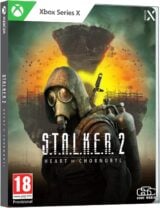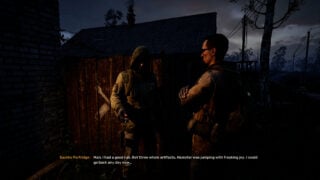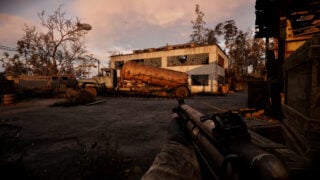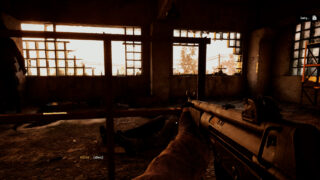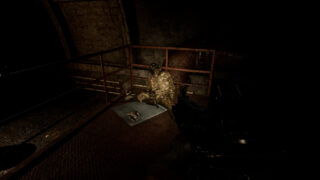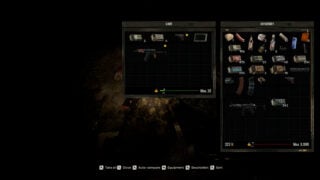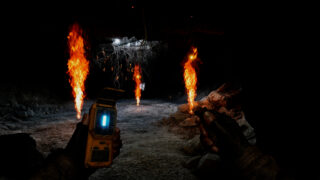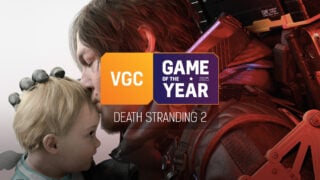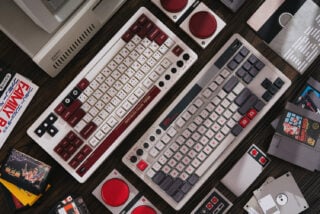Stalker 2 feels like a winning return for the franchise in impossible real-world circumstances
War, moving across Europe, and an office fire can’t stop GSC Game World’s survival epic
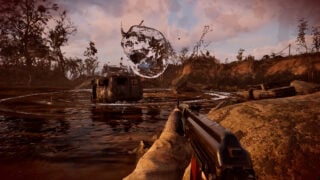
The phrase “against all odds” is used a lot in development, but we’d wager it’s never been as applicable as in the story of Stalker 2.
As we’re walking through GSC Game World’s Prague offices, it’s impossible not to feel deeply forlorn about the journey the game took to be something that’s even playable, never mind something genuinely great.
The offices are new, hurriedly put together, and covered in Ukranian art. Every floor is a reminder of the backdrop against which the game is being made, Russia’s invasion, as members of staff scan their fingerprints to enter and exit the highly secure studio.
“It didn’t hit our studio, but the metro station we take to go to and from work,” mentions a member of staff offhandily, referring to one of many hundreds of rocket attacks that the city of Kyiv suffered. On a shelf near some artists, a miniature departure board from Kyiv-Pasazhyrskyi railway station shows live updates from home.
So, how is it even possible to develop a game of this scale, with this level of expectation, under these immense circumstances? Well, against every imaginable odd, they’ve done it. How do *they* feel?
“Everyone is asking this question: my answer is an extreme level of anxiety,” lead producer Slava Lukyanenka tells us.

As we chat about our experience with the game, we can almost see Lukyanenka mentally taking notes and feedback mid-conversation. These last few weeks before the game is put to bed are so crucial, it’s frankly amazing we’ve even been invited in to play the game’s opening few hours.
The game’s intro, which we first played in June, didn’t leave the best first impression at the time. While we could see the general framing of what the game was going for, playing it in a loud, bright, time-constrained environment didn’t lend well to what Stalker 2 is trying to achieve.
This time, things were different. In a dark, boiling hot room, shaded from the beautiful Prague day outside, we were instantly immersed in the game’s first-person tale of survival. After a short opening chapter establishing the threats, state of the world, and level of difficulty, we were let loose into the open world.
Here, Stalker 2 becomes a much more modern, first-person RPG. Early quests introduce us to the various threats present in the world. Not only are we competing with human enemies that will shred us before we even notice them, but otherworldly anomalies lurk in the fields around the exclusion zone. The game quickly establishes that you’re in virtually constant danger. While taking the marked roads rather than as-the-crow-flies will probably reduce the hell you run into, nowhere is truly safe.
The game has the mentality of a hardcore PC game, but it’s also being advertised to a modern audience with far different expectations than Stalker fans who have waited for so long. Lukyanenka explains that the push and pull between making a modern game with modern trappings, and retaining that hostile tone in the world is something the team constantly struggles with.

“We have some clashes on simple things like if we need to colour a ladder or not,” says Lukyanenka. “It shouldn’t be coloured in the Zone, but at the same time, people need some guidance to interact with something. All the time we’re facing these challenges. At the end of the day, only playtests and the reaction of the players show us what’s going to be the way.
“Sometimes it makes some players upset, at the same time, we know that many things that might be perceived by the players as ‘they didn’t highlight this, why?’ You need to learn that yourself.”

We run into one such colored ladder during our first sidequest. As we approach one of the few still-remaining houses, we see three people shooting at a hidden fourth person inside. We have no context for who is the goodie and the baddie here, so we take a punt and shoot the three outside. A good guess, we’re given a sidequest to rescue the quest giver’s friend from a garage further up the road.
In any other RPG, this would be a brief introduction to the quest system, as well as showing players that quests can have optional objectives to make life easier. In Stalker 2, it was a lesson in how few bullets it takes to reduce you to a pile.
We sneak up from the right of the garage, hidden by brick walls. Stalker’s UI is incredibly sparse, with the first indicator that we’ve been spotted usually being a bullet through the skull. After sneaking to the back of the garage, we find the aforementioned coloured ladder and head to the top of a smoke stack. Unfortunately, we’re quickly spotted, and easily picked away at by the group of enemies loitering at the bottom.
When we eventually do complete the quest, it’s because we’ve been utterly ruthless with our shooting. A few good shots, hide, a few good shots, hide. There’s no room for unloading a clip on one enemy, when swooping around to kill another. Every move you make has to be very considered, or you’ll die. Even when you feel powerful, you’ve found a good weapon, and you have decent healing items, if you mess around too much, you’ll be humbled very quickly.

All of this made what is essentially an incredibly pedestrian side quest much more interesting. The discovery of minor healing items is suddenly exciting. A shotgun, even a broken one, a huge boon. It’s not hard to see how a game made through such adversity has adversity so tightly knitted into its fabric. It’s an offer that’s uncommon in games with this level of presentational might.
The PC version that we saw was beautiful. The golden hour glow of the zone almost offset the ominous ticking of the Geiger counter. There are still frames from Stalker 2 that look like a picturesque walking sim. This uneasy quiet is a wonderful counterbalance to the hectic I-can’t-believe-I’m-alive gunplay.
It’s during one of these walks that we find a random body in a hut. The body, which has some loose items scattered around it has a name. In this case, it’s Vasko Hurly Burly. We have no idea who Vasko is, Vasko has never been mentioned to me before, but our imaginations start running with who this person was, what their role was in the world, and how they ended up here. It’s an old trick, but in naming every NPC, even the random dead bodies, makes the world feel much more lived-in.

“It’s not just a random person, it’s someone who had a story, who had a desire, who had affiliation, it feels more natural,” says Lukyanenka.
While Stalker 2 has plenty of trappings of other modern, less hardcore titles, with its positioning on Game Pass, and the marketing push it has received from Microsoft, it would have been easy to imagine the game being modernized in order to reflect the much larger audience it’s about to face, but we’re told that retaining the spirit, and adversity of the original was absolutely key to the development.
“That was one of the key pillars,” explains Lukyanenka “This game is known as something that survived for years through modders and the PC community, we can’t just give up and forget it was a hardcore shooter, we have to respect it. We can’t modify it or have it any other way, or it won’t be Stalker 2, it’ll just be some other game.”
We wondered if the success of Stalker 2 could inspire a new wave of hardcore shooters in its wake. “I hope so!” Lukyanenka says excitedly. “We can just hope for that. I know several games that are also in development that will take a similar approach to what we do. When you put it in my head, I can’t stop thinking about it. I’d be hoping for that.”

As we concluded our demo, it was very difficult not to fixate on everything that’s happened to the studio in the past few years. On the one hand, the developers likely want their work to stand on its own, and not have every single conversation centered around everything that’s happened, on the other, we’re sat meters from the scene of a massive office fire, a fire that probably wouldn’t crack the top 10 harrowing things the team has experienced in the past few.
“The real world circumstances changed more than you think,” Lukyanenka ponders. “Every challenge we had from real life, we had to adapt. A year ago when we had the fire, it unified us, but also changed the direction of some things. It asked us to rethink what we should do, and what we shouldn’t. We gave up on some ideas and amplified the others.
“In the original game, we had an arena, where you could fight other Stalkers, or people from other factions, when we had the fire we had to restore the work we did before. Arena was about to be cut because we couldn’t pull it out of our repository, we tried over and over. One of our developers spent a few additional nights cherry-picking every file to revive it, and now it’s going to be in there.”
We’re keen to have the final game in our hands, after what was an impressive few hours. It’s hard to imagine most studios making even a decent game in these circumstances, but for GSC Game World to emerge from the literal rubble of their home city, with something so promising, is incredibly inspiring.
As for the future of Stalker, we’re told that the release day is “only the beginning,” and that the modding roots that kicked off the careers of many now working on Stalker 2 will be honored.
“[Modding] is planned for one of our first patches, we already have connections and requests from people working on Stalker 1. We’ll do our best to satisfy their needs as soon as we’re done with the base game.”
